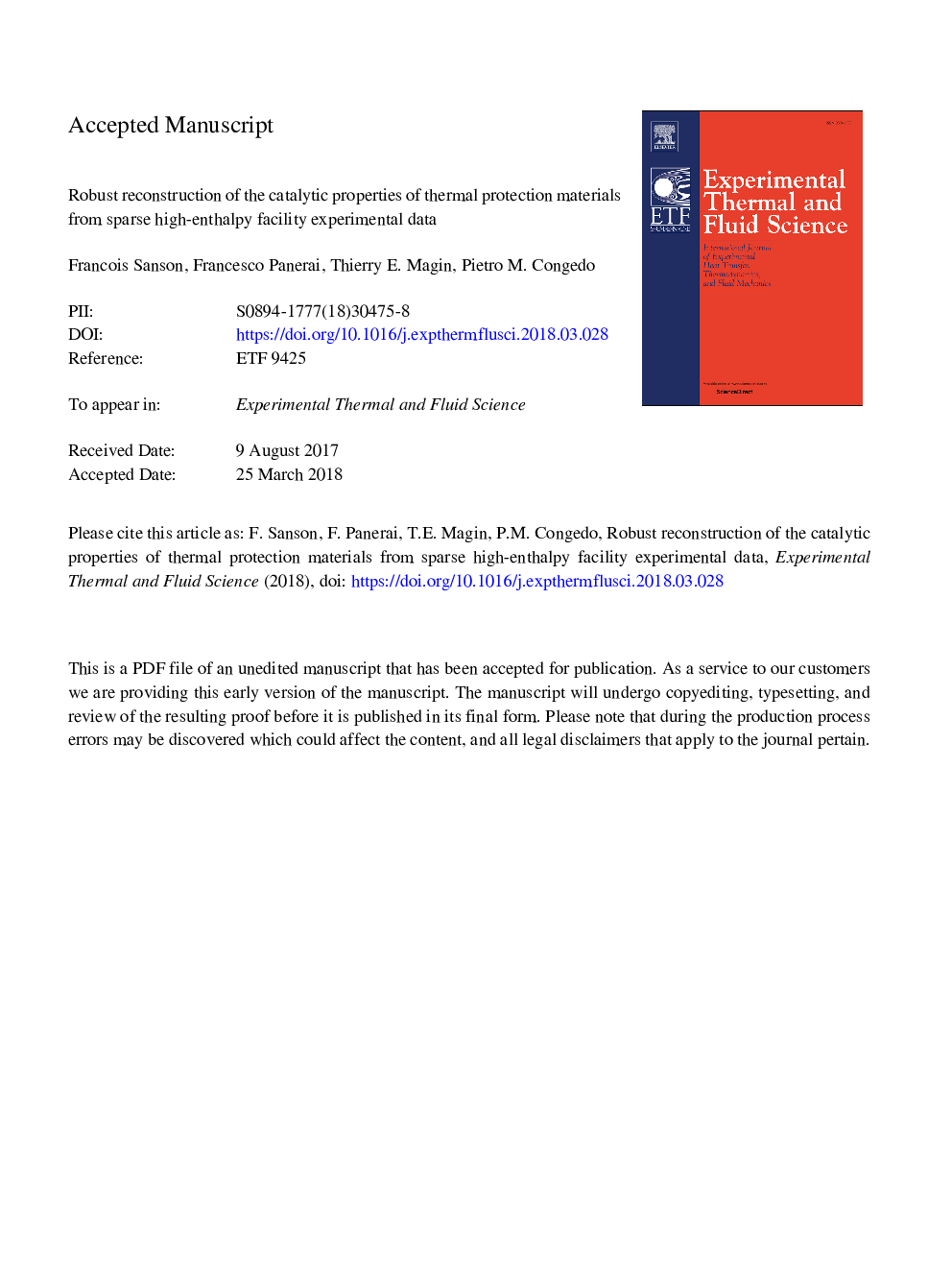| Article ID | Journal | Published Year | Pages | File Type |
|---|---|---|---|---|
| 7051727 | Experimental Thermal and Fluid Science | 2018 | 45 Pages |
Abstract
Quantifying the catalytic properties of reusable thermal protection system materials is essential for the design of atmospheric entry vehicles. Their properties quantify the recombination of oxygen and nitrogen atoms into molecules, and allow for accurate computation of the heat flux to the spacecraft. Their rebuilding from ground test data, however, is not straightforward and subject to uncertainties. We propose a fully Bayesian approach to reconstruct the catalytic properties of ceramic matrix composites from sparse high-enthalpy facility experimental data with uncertainty estimates. The results are compared to those obtained by means of an alternative reconstruction procedure, where the experimental measurements are also treated as random variables but propagated through a deterministic solver. For the testing conditions presented in this work, the contribution to the measured heat flux of the molecular recombination is negligible. Therefore, the material catalytic property cannot be estimated precisely. Moreover, epistemic uncertainties are rigorously included, such as the unknown reference calorimeter catalytic property.
Related Topics
Physical Sciences and Engineering
Chemical Engineering
Fluid Flow and Transfer Processes
Authors
Francois Sanson, Francesco Panerai, Thierry E. Magin, Pietro M. Congedo,
